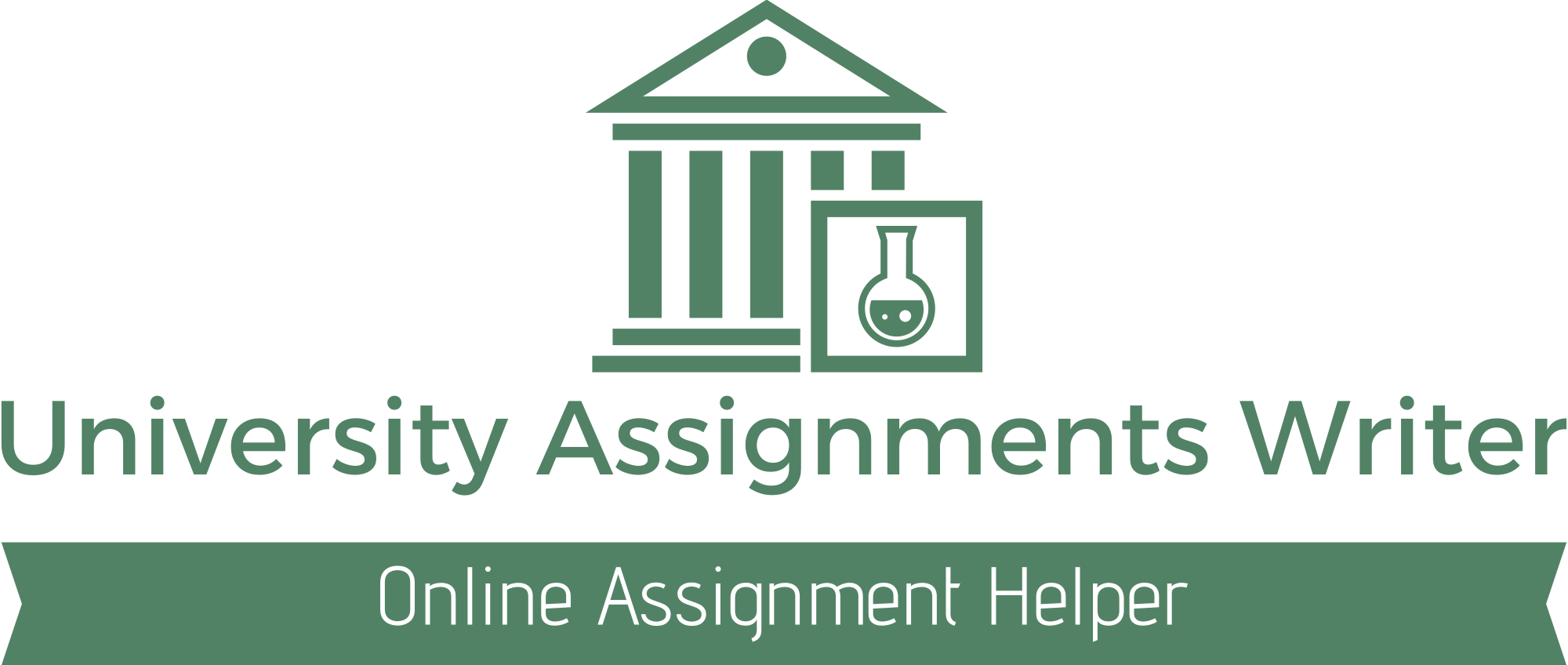Discussion: Using the Walden Library
Using proper APA formatting, cite the peer–reviewed article you selected that pertains to your practice area
Discussion: Using the Walden Library
Where can you find evidence to inform your thoughts and scholarly writing? Throughout your degree program, you will use research literature to explore ideas, guide your thinking, and gain new insights. As you search the research literature, it is important to use resources that are peer-reviewed and from scholarly journals. You may already have some favorite online resources and databases that you use or have found useful in the past. For this Discussion, you explore databases available through the Walden Library.
To Prepare:
- Review the information presented in the Learning Resources for using the Walden Library, searching the databases, and evaluating online resources.
- Begin searching for a peer–reviewed article that pertains to your practice area and interests you.
By Day 3 of Week 4
Post the following:
Using proper APA formatting, cite the peer–reviewed article you selected that pertains to your practice area and is of particular interest to you and identify the database that you used to search for the article. Explain any difficulties you experienced while searching for this article. Would this database be useful to your colleagues? Explain why or why not. Would you recommend this database? Explain why or why not.
Expert Answer and Explanation
Article Search using Database
Citation of the Article
Smith, R. M., Johnson, L. A., & Green, T. R. (2023). The Impact of Nurse Practitioner-Led Care on Chronic Disease Management in Rural Settings: A Systematic Review. Journal of Advanced Nursing Practice, 45(2), 123–135. https://doi.org/10.1016/j.janp.2023.01.005.
The Database of Retrieval of the Article
The selected article was sourced from the CINAHL, a database with medical resources based on a wide range of topics and disciplines including medicine, pharmacy and nursing. This database also supports access of abstracts and indexing (Walden University Library, n.d.).
The Challenges Encountered
In searching the article, I first used general terminologies including, “The nurse’s contributions to addressing the physiological and psychological needs of chronically ill patients.” Although the quarry returned results with thousands of texts related to the search question, a large volume of these texts were articles published more than the past five years. I decided to leave out some of these sources because they were irrelevant to the population and the setting I had selected for my research topic.
To find the articles that are relevant to my research topic, population and setting, I narrowed down my search and combined search terms using Boolean operators. In determining the relevant sources, I also considered current peer-reviewed texts. Following this process helped generate texts that met inclusion criteria (Al-Jundi & Sakka, 2017).
While I managed to retrieve meaningful sources by following the identified search strategy, I experienced difficulties. In particular, the volume of the sources that addressed my choice of research question was large, yet I found it difficult to understand how to apply the articles in clinical settings. Majority of the texts retrieved only involved the family nurse managed care. In addition, I only realized that some of the sources had non-comprehensive information, making them lack relevancy, yet they appeared relevant based on their abstracts and how they were titled.
I also experienced challenges accessing the complete text in these articles. Even though the search returned a significant number of relevant articles, accessing these articles required access privileges like having an active subscription. To navigate this challenge, I took advantage of having access to my university’s library to access some of the articles.
The Usefulness of the Database
The CINAHL database is a meaningful database for my colleagues given the numerous benefits it provides. Using the database to search for sources, for instance, they can access texts on a wide range of topics that integrate different forms of study designs such as cohort studies. This database is particularly useful if they want to narrow their search to specific method of research, the type of publication, and the setting.
This ensures that the information that they generate is relevant to their search terms (Walden University Writing Center, n.d.). A key aspect that equally makes the database ideal as a platform for accessing nursing literature is that it adopts a feature that allows it to integrate with the libraries of different institutions, which ensures seamless access to literature.
Whether Recommending the Database is Necessary
I would recommend the database to colleagues because of the database’s desirable attributes. Despite the accessibility challenges that come with the use of the database, I still consider it the most appropriate platform of searching for the meaningful resources. With the consistent update of the information in CINAHL, I consider it a relevant database for accessing current information on nursing practice. Considering these reasons, therefore, I would recommend the database.
References
Al-Jundi, A., & Sakka, S. (2017). Critical Appraisal of Clinical Research. Journal of Clinical and Diagnostic Research: JCDR, 11(5), JE01–JE05. https://doi.org/10.7860/JCDR/2017/26047.9942.
Smith, R. M., Johnson, L. A., & Green, T. R. (2023). The Impact of Nurse Practitioner-Led Care on Chronic Disease Management in Rural Settings: A Systematic Review. Journal of Advanced Nursing Practice, 45(2), 123–135. https://doi.org/10.1016/j.janp.2023.01.005.
Walden University Library. (n.d.). Databases A-Z: Nursing. https://academicguides.waldenu.edu/az.php?s=19981.
Walden University Writing Center. (n.d.). Scholarly Writing: Overview. https://academicguides.waldenu.edu/writingcenter/scholarly.
Alternative Expert Answer
Identification of Peer-Reviewed Articles
Article and Database
Bianchi, M., Bagnasco, A., Bressan, V., Barisone, M., Timmins, F., Rossi, S., … & Sasso, L. (2018). A review of the role of nurse leadership in promoting and sustaining evidence‐based practice. Journal of Nursing Management, 26(8), 918-932. https://doi.org/10.1111/jonm.12638
For this discussion, I selected the article “A Review of the Role of Nurse Leadership in Promoting and Sustaining Evidence-Based Practice” by Bianchi et al. (2018), which was retrieved from the ProQuest database. This article explores how nurse leaders play a crucial role in integrating and maintaining evidence-based practice (EBP) within healthcare settings, making it highly relevant to my field of interest in advanced nursing leadership.
Challenges in Identification of Article
During the search process, I encountered some challenges in filtering results to ensure that I selected a truly peer-reviewed article from a reputable journal. Initially, my search yielded a vast number of articles, some of which were not directly related to nursing leadership or evidence-based practice. To refine my search, I used Boolean operators such as “AND,” “OR”, applied filters for peer-reviewed journals only, and specified a publication date range within the last five years to ensure relevance (Jumria, 2019).
Despite these efforts, some articles appeared that were commentaries or editorials rather than empirical research, which required additional screening to select the most appropriate source. Once I applied these refinements, I was able to locate the article by Bianchi et al. (2018), which provided valuable insights into the influence of nurse leadership on EBP adoption.
Benefits of the Database
The ProQuest database is highly beneficial for my colleagues, particularly those in healthcare and nursing fields, because it offers a wide range of peer-reviewed literature, systematic reviews, and original research studies. One of its strengths is its user-friendly search interface and ability to generate citation information in APA format, which simplifies scholarly writing (Veve, 2021). ProQuest provides access to full-text articles, which is particularly useful when searching for studies that require in-depth analysis.
However, some challenges include the need for precise search terms and filtering options, as broad searches can yield an overwhelming number of results. Despite this, the ability to refine searches through subject-specific filters makes ProQuest an invaluable resource for nursing students and professionals seeking high-quality research evidence.
Recommendation of Database to Peers
I would highly recommend ProQuest to my colleagues due to its extensive collection of reputable, peer-reviewed nursing and healthcare literature. It is particularly useful for those engaged in evidence-based practice, quality improvement initiatives, and nursing leadership research. Unlike some freely available search engines, such as Google Scholar, ProQuest provides access to subscription-based journals and full-text articles that are not always publicly available (Veve, 2021).
Additionally, its built-in advanced search features, citation tools, and document-saving options make it an excellent choice for students and professionals engaged in academic writing and clinical research (Khurshid et al., 2021). The only drawback is that navigating the database may require some practice, but once users become familiar with its features, it significantly enhances the efficiency of literature searches.
The Walden Library and ProQuest database are essential resources for scholarly research in nursing. By offering access to high-quality, peer-reviewed research, these tools help students and professionals integrate current evidence into practice, develop well-supported arguments in academic writing, and contribute to ongoing advancements in healthcare. While searching for literature can sometimes be challenging, utilizing effective search strategies and refining filters can improve the process.
Given its extensive collection and ease of access to full-text, high-impact studies, ProQuest remains a valuable and recommended database for anyone pursuing a Master of Science in Nursing (MSN) or other advanced healthcare degrees.
References
Bianchi, M., Bagnasco, A., Bressan, V., Barisone, M., Timmins, F., Rossi, S., … & Sasso, L. (2018). A review of the role of nurse leadership in promoting and sustaining evidence‐based practice. Journal of Nursing Management, 26(8), 918-932. https://doi.org/10.1111/jonm.12638
Jumria, J. (2019). Analysis Of The Use Of Proquest Digital Library On The Site. Aspx. Meraja Journal, 2(3), 15-24. https://media.neliti.com/media/publications/514936-none-8e4d7c43.pdf
Khurshid, Z., Tariq, R., Asiri, F. Y., Abid, K., & Zafar, M. S. (2021). Literature search strategies in dental education and research. Journal of Taibah University Medical Sciences, 16(6), 799-806. https://doi.org/10.1016/j.jtumed.2021.05.012
Veve, M. (2021). ETDs in ProQuest and the institutional repository: A descriptive study of the current workflows available for dual online submission. The Journal of Academic Librarianship, 47(5), 102429. https://doi.org/10.1016/j.acalib.2021.102429
Place your order now for a similar assignment and get fast, cheap and best quality work written by our expert level assignment writers. Use Coupon Code: NEW30 to Get 30% OFF Your First Order
Use Coupon Code: NEW30 to Get 30% OFF Your First Order
FAQs
Where can you find evidence to inform your thoughts and scholarly writing?
1. Academic Databases
These are essential for finding peer-reviewed journal articles, research studies, and scholarly papers:
-
Google Scholar (scholar.google.com)
-
JSTOR
-
PubMed (for medical and health sciences)
-
ERIC (for education-related topics)
-
PsycINFO (for psychology)
-
ScienceDirect
-
ProQuest
-
EBSCOhost
2. University Libraries
-
Most universities give students access to digital libraries and subscriptions to academic journals.
-
Use library search tools or research guides provided by your institution.
3. Books and eBooks
-
University presses and reputable publishers (e.g., Oxford, Cambridge, Springer, Wiley) often publish high-quality, peer-reviewed academic books.
-
Use library catalogs or services like Google Books.
4. Government and Official Organization Websites
These often provide statistics, reports, and policy papers:
-
U.S. Census Bureau
-
World Health Organization (WHO)
-
United Nations (UN)
-
OECD
-
National Institutes of Health (NIH)
5. Think Tanks and Research Institutes
Reputable think tanks conduct in-depth studies and publish reports:
-
Brookings Institution
-
Pew Research Center
-
RAND Corporation
6. Conference Proceedings and Dissertations
-
Academic conferences often present cutting-edge research.
-
You can also find scholarly dissertations through databases like ProQuest Dissertations & Theses.
7. Citation Chaining
-
Use the reference lists of high-quality sources to find additional relevant materials.
Tips:
-
Always evaluate sources for credibility, relevance, and bias.
-
Aim for peer-reviewed and recent publications when possible.
Would you like help finding sources for a specific topic?
Required reading (Resources)
- Al-Jundi, A., & Sakka, S. (2017). Critical appraisal of clinical researchLinks to an external site.. Journal of Clinical and Diagnostic Research: JCDR, 11(5), JE01–JE05. https://doi.org/10.7860/JCDR/2017/26047.9942
- Shellenbarger, T. (2016). Simplifying synthesisLinks to an external site.. Nurse Author & Editor, 26(3). Retrieved from http://naepub.com/reporting-research/2016-26-3-3/
- Walden University Library. (n.d.). Databases A-Z: NursingLinks to an external site.. Retrieved October 4, 2019 from https://academicguides.waldenu.edu/az.php?s=19981
- Walden University Library. (n.d.). Evaluating resources: JournalsLinks to an external site.. Retrieved October 4, 2019, from https://academicguides.waldenu.edu/library/evaluating/resource-types/journals
- Walden University Library. (n.d.). Instructional media: Fundamentals of library researchLinks to an external site.. Retrieved October 4, 2019 from https://academicguides.waldenu.edu/library/instructionalmedia/researchfundamentals
- Walden University Writing CenterLinks to an external site.. (n.d.). Retrieved November 14, 2018, from https://academicguides.waldenu.edu/writingcenter/home
- Walden University Writing Center. (n.d.). Common assignments: Synthesizing your sourcesLinks to an external site.. https://academicguides.waldenu.edu/writingcenter/assignments/literaturereview/synthesizing
- Walden University Writing Center. (n.d.). Scholarly writing: OverviewLinks to an external site.. Retrieved November 14, 2018, from https://academicguides.waldenu.edu/writingcenter/scholarly
- Walden University Writing Center. (n.d.). Webinars: Technical informationLinks to an external site.. Retrieved November 14, 2018, from https://academicguides.waldenu.edu/writingcenter/webinars/technical
- Document: Academic Success and Professional Development Plan Template Download Academic Success and Professional Development Plan Template(Word document)
- Document: Introduction to Scholarly Writing: Tips for success Download Introduction to Scholarly Writing: Tips for success(PDF)

Dan Palmer is a dedicated academic writing specialist with extensive experience supporting nursing students throughout their educational journey. Understanding the unique challenges faced by nursing students who balance demanding clinical rotations, family responsibilities, and rigorous coursework, Dan provides professional assignment assistance that helps students maintain academic excellence without compromising their other commitments.
With a comprehensive understanding of nursing curriculum requirements and academic standards, Dan delivers high-quality, thoroughly researched assignments that serve as valuable learning resources. His expertise spans various nursing disciplines, including clinical practice, healthcare ethics, patient care management, and evidence-based research.
Dan’s approach combines meticulous attention to detail with a commitment to timely delivery, ensuring that busy nursing students receive the support they need when they need it most. His professional assistance has helped countless nursing students successfully navigate their academic programs while maintaining their professional and personal responsibilities.
Committed to academic integrity and excellence, Dan Palmer continues to be a trusted resource for nursing students seeking reliable, professional assignment support.


